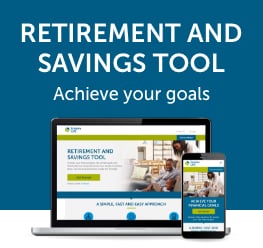
The next retirement myth is an example of an inter-generational issue. It also goes back to the issue of when to start making and funding plans for retirement.
Retirement myth #10: I’m too young for critical illness or long term care coverage
I’m too young to start paying for critical illness or long- term careA 2013 Retirement Myths and Realities Poll found that 42% of younger boomers said being a caregiver was something they had already done, were doing, or expected to do some time. Where does the money come from for out of pocket expenses, time lost from the job and a caregiver’s need for retirement savings?
One of the smart things you can do is buy a critical illness policy while you are still young, healthy and working. You need reasonably good health to qualify. Time has a way of building a family health history full of issues that can drive up costs or prevent you from getting coverage. When should you look at long term care policies? Ideally, in your 50s or perhaps even earlier, before costs get prohibitive. Your retirement plans and income streams can be destroyed by overlooking healthcare costs. Those costs can be to provide for your own well-being or that of aging parents. Yes, buy plans for yourselves. Consider buying or sharing the costs for parents too. They could do the same for you depending on who has the greatest available cash flow. After all, you will probably spend more of your lifetime taking care of parents than raising your children. What will that do to your retirement nest egg? There is a difference between caring and providing care. When you think of all the costs involved in both options, emotional, physical and financial; which cost can you best handle?
If you have been keeping count, you would have noticed that I had 10 myths about retirement to share with you. Well that’s a myth too. Here’s one more to think about.
Retirement myth #11: I have an RRSP, stocks, mutual funds and some GICs. So yes, I have a retirement plan. |
 |
All of these savings products are important but your investments are not your retirement plan. They are some of the tools and product solutions that can help you implement your plan. You need to sit down with a retirement income planning specialist to write down a detailed plan that captures what it is you want to do specifically, when you want to do those things, what those experiences will actually look like, how long you want to do them and whether you want to do them no matter what. It becomes a personalized document that you use to pick the plans and products that will work best for each set of expenses, for each phase of life. Those products need to work together to help you live the life you want and provide contingencies when things go wrong. They also should help you leave the legacies that are important to you. Once again, make sure you stress test it all to make sure that the plans, strategies and solutions continue to do the job they were designed to do. Build in flexibility for the inevitable changes you will encounter. And enjoy your times today and during retirement.
© 2020 by Peter a Wouters. Republished with permission by Peter Wouters. For the complete list of articles, please visit here.
Related articles:
Ten retirement myths series: Myth #9
Ten retirement myths series: Myth #8
Ten retirement myths series: Myth #7
Ten retirement myths series: Myth #6
Ten retirement myths series: Myth #5
Ten retirement myths series: Myth #4
Ten retirement myths series: Myth #3
Ten retirement myths series: Myth #2
This material is presented for informational purposes only, and is not a legal, tax or investment opinion. The provision of the information contained herein and any oral or written communication regarding the same should not nor is intended to be construed as such. Interested persons should seek retained independent professional advice before acting or foregoing action in relation to any of the matters mentioned herein reflected as of the date published or updated.
This blog reflects the views of the author as of the date stated. This information should not be considered a recommendation to buy or sell nor should it be relied upon as investment, tax or legal advice. Empire Life and its affiliates does not warrant or make any representations regarding the use or the results of the information contained herein in terms of its correctness, accuracy, timeliness, reliability, or otherwise, and does not accept any responsibility for any loss or damage that results from its use.
October 2020

